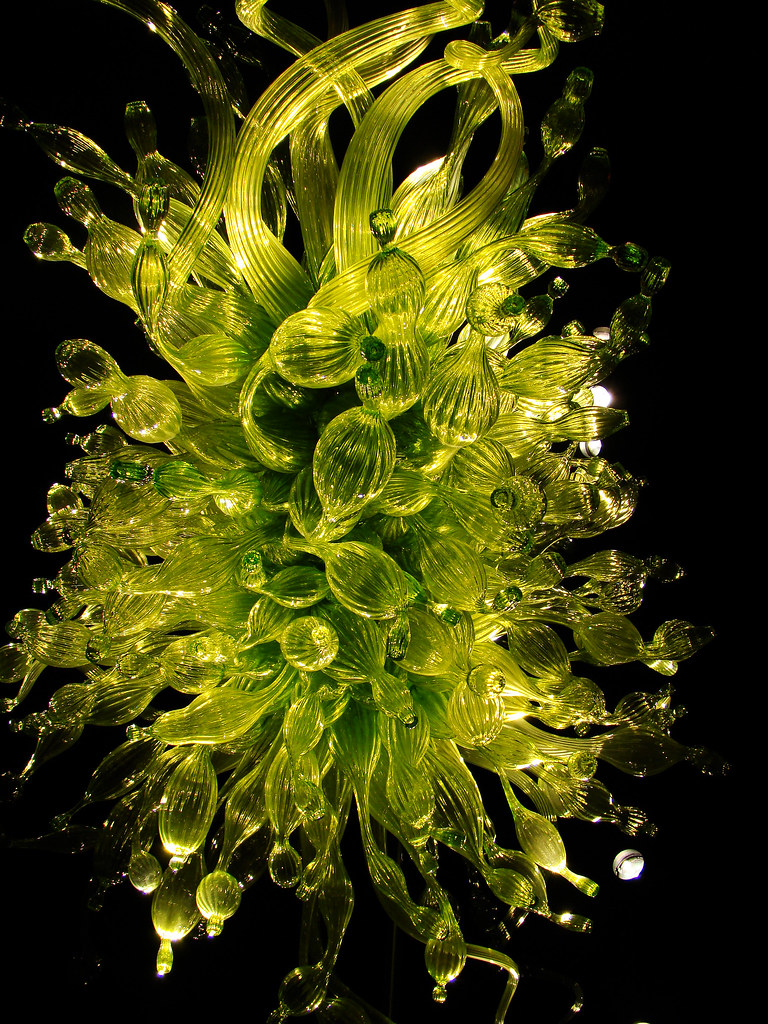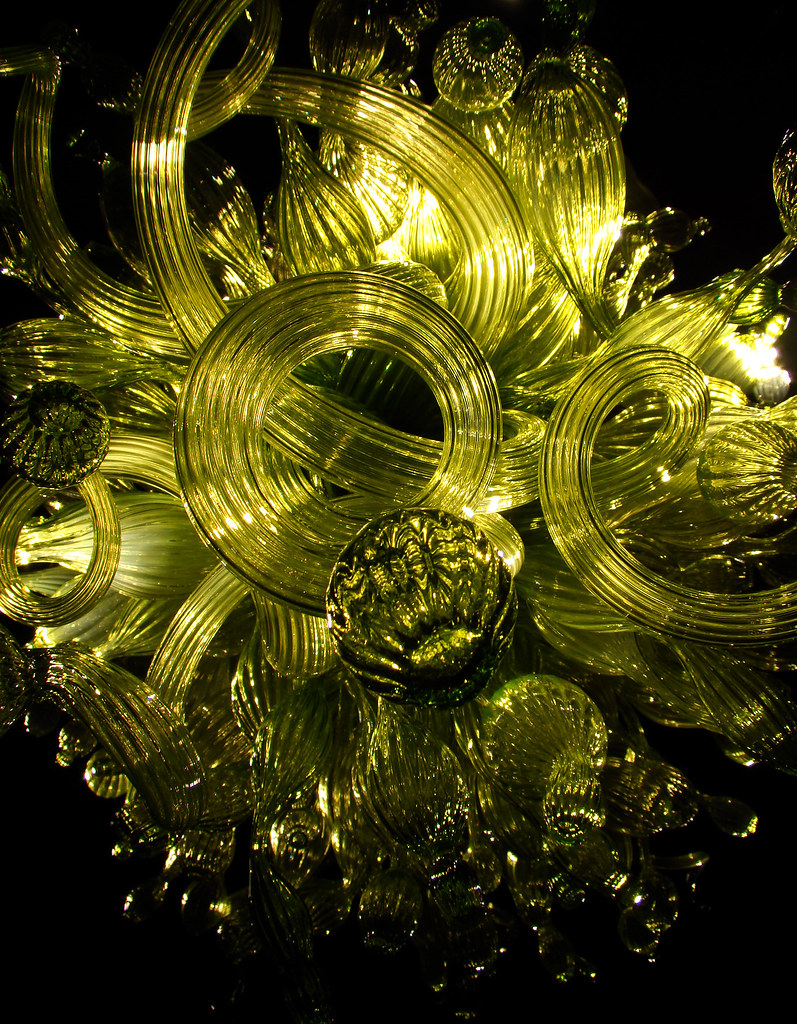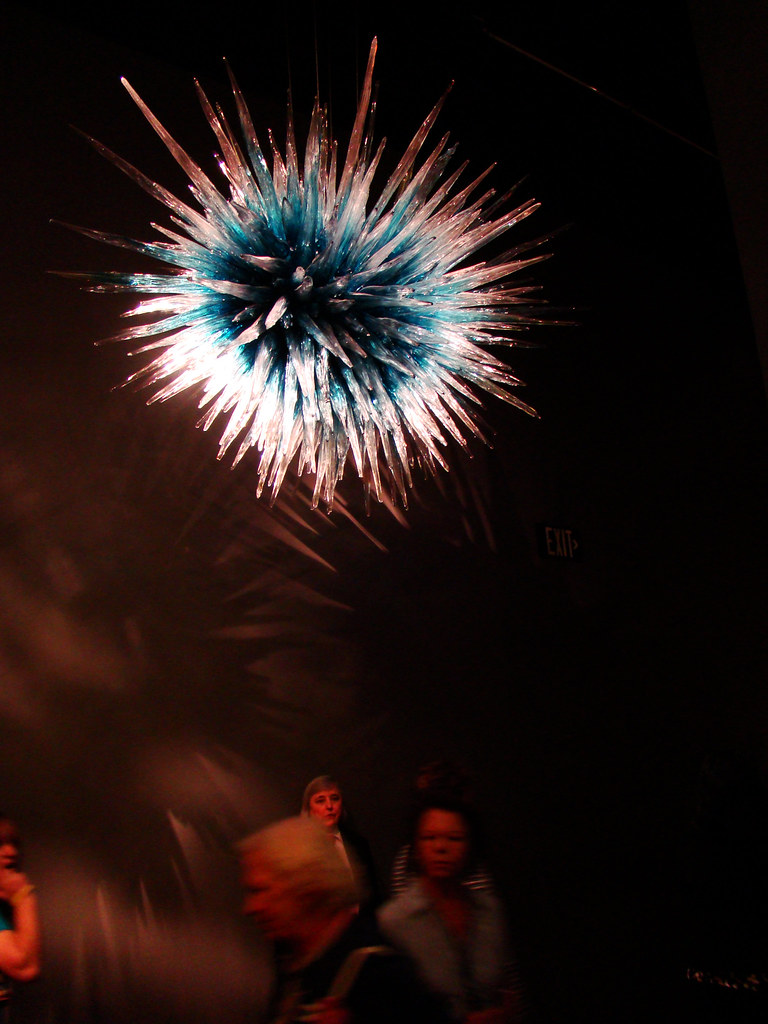This post is a continuation of my previous post touring Dale Chihuly's exhibit at the De Young Museum during the summer of 2008.
My favorite part of the 12,000 square foot installation was the Boat Room, where two wooden boats were placed on highly reflective black glass.
One boat was filled with Nijima Floats, inspired by the small Japanese fishing floats Chihuly used to find on the shores of Puget Sound when he was a child.
The Ikebana Boat, was filled with glass floral forms.

_____
The Chandelier Room housed Chihuly's iconic designs.
I'd seen a chandelier in a Barcelona restaurant when I was traveling. There was a chandelier hanging at eye level over each table, because the room had a low ceiling. And it was really beautiful. I loved this idea of hanging a chandelier at eye level. It triggered something that said that now I could make a chandelier, because it doesn't have to be functional.
--Dale Chihuly
...The parts can be bulbous, long and twisted, short and spiraled, or even frog-toed. Hung together, the many pieces that make up each Chandelier create a unified, though complex, composition.
--Dale Chihuly
Orange Hornet Chandelier was installed in my old loft space in the Railway Building. One great story is that the color was so intense at night, with low voltage light on, we used to get calls because people thought the space was on fire. I always liked that one.
--Tracy Savage, Savage Fine Art, Portland, Oregon
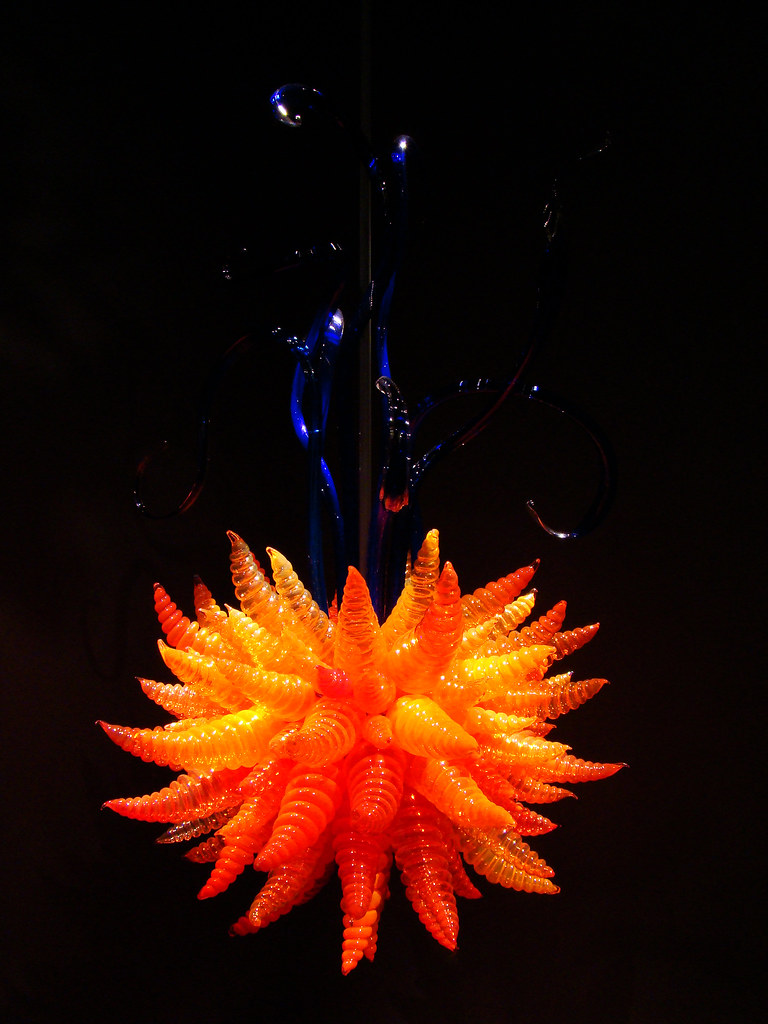
The blue Urchin Chandelier provided a wonderful contrast in texture.
I pushed Billy Morris to make Macchia bigger and bigger and bigger. By the time we got done, we were making Macchias about three feet high and three feet wide. At the time, that was the largest glass I'd ever made, and some of the largest glass that had ever been made.--Dale Chihuly

Pushing the envelope of the medium comes with risk and reward:
It's important that we lose pieces. You get there faster, I think, by losing pieces, because you're pushing yourself and you know how far to come back.
--Dale Chihuly
Yet Chihuly and his team never strayed from their artistry; they didn't create these just for the sake of their grand scale.
_____
I have a special affection for this red and black object, showcased on the Venetian Wall, because it looks like three-dimensional calligraphy.
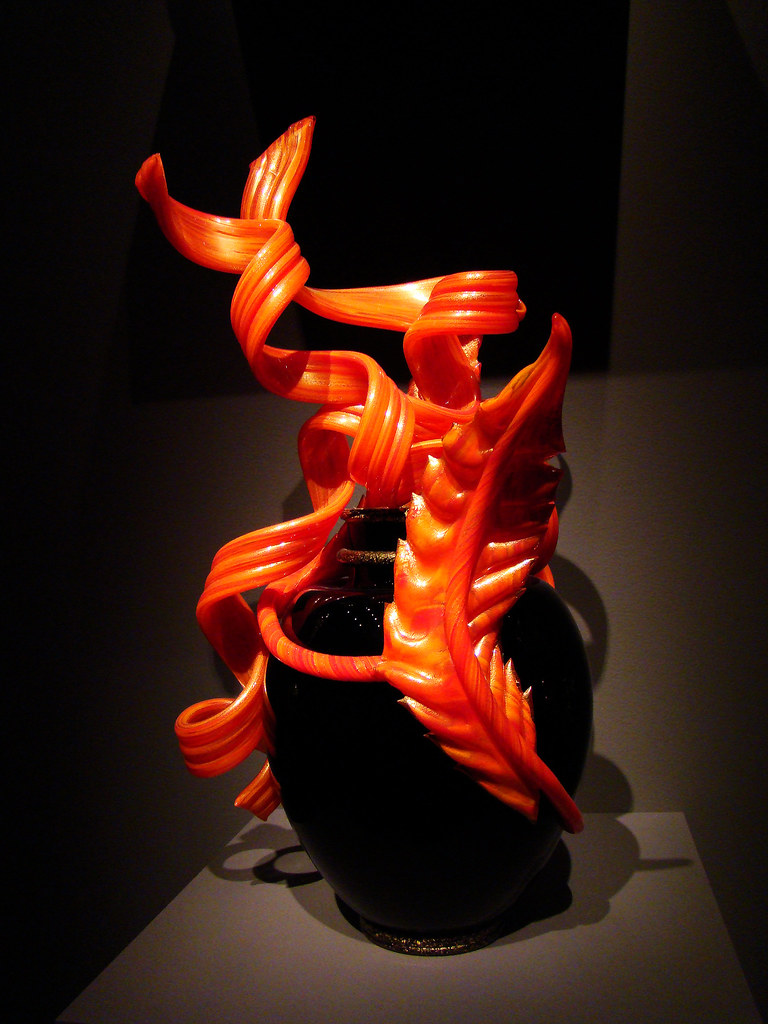
Putti are these little characters, they're male, and they were used in Renaissance and Baroque times, and they were put up in the churches, or in the paintings--they were carved out of wood or made of plaster. And they were meant to make people feel good. And to get people together...and maybe they were a little mischievous. They were just meant to suggest a good time, and they looked good. And they probably made people think about youth and this was a great symbol.--Dale Chihuly
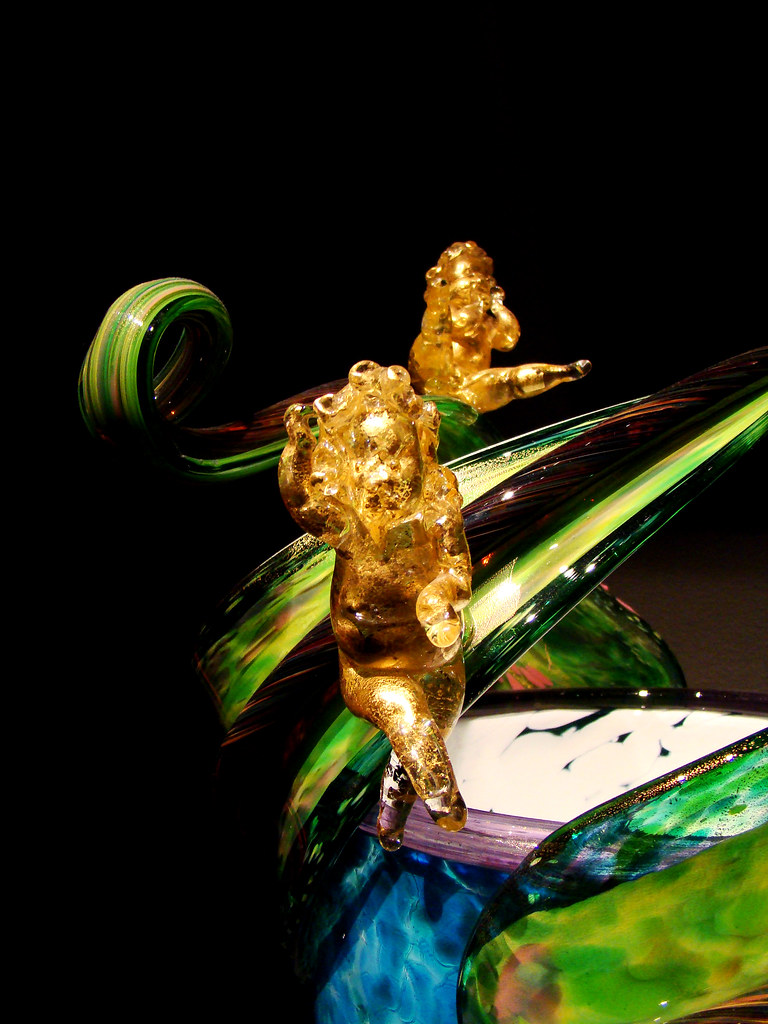
I caught myself spotting for Putti swimming among the aquatic forms.
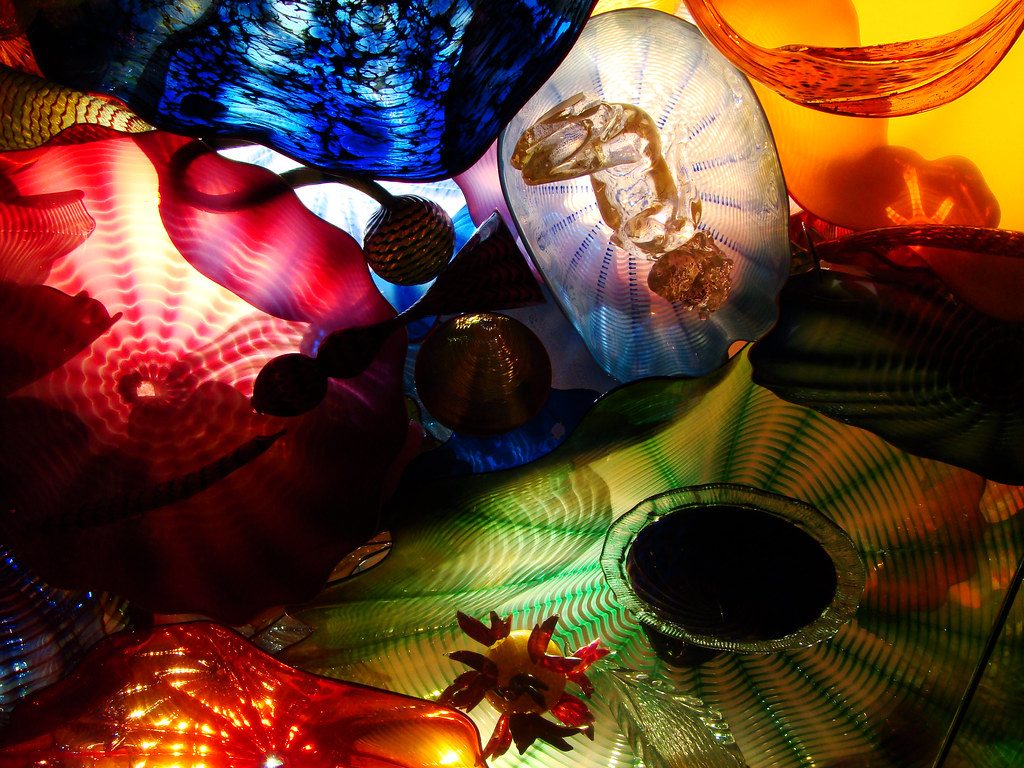
Although Chihuly forms are essentially abstract, they seem nature-based. The undulating sides, swirling lips, and progressively spaced stripes suggest they may have been shaped by eddying water or gusts of wind. Though the scalloped edges are in fact stationary, their apparent fluidity hints at potential movement like the swaying of organisms responding to tidal changes.--David Bourdon, "Chihuly, Climbing the Wall"
Art in in America, June, 1990
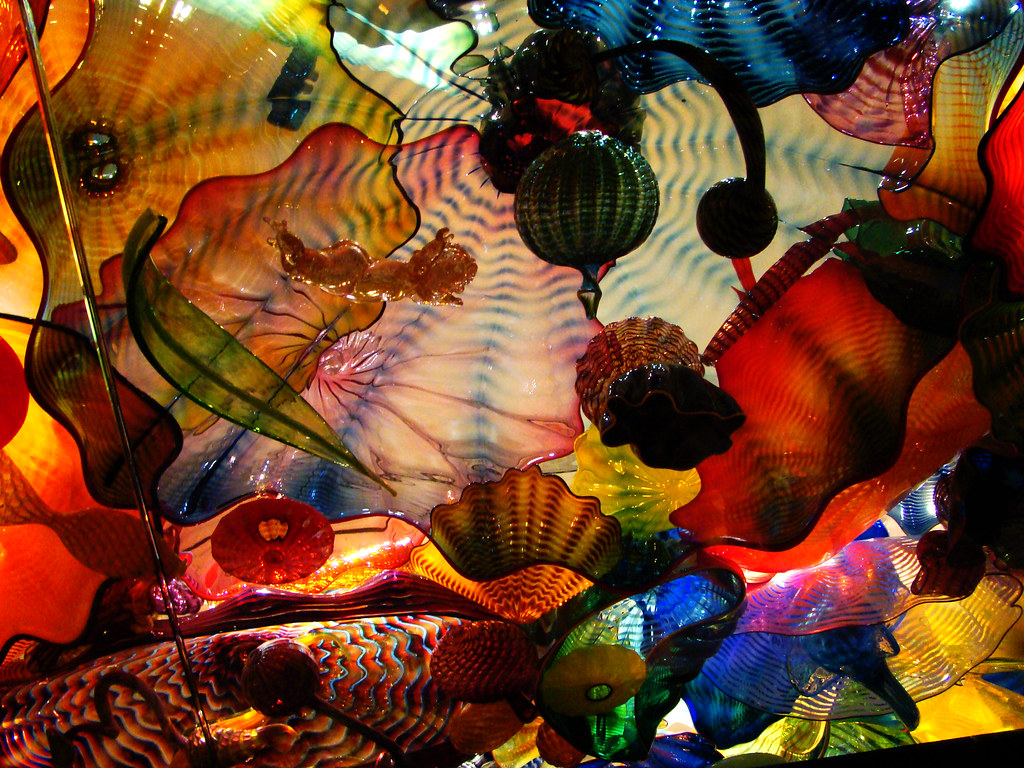
_____
Mille Fiori looks like it came directly from Lewis Carroll 's imagination. This grand glass garden rises out of a 12' x 56' reflective platform.

People have asked what inspired me to do the Mille Fiori. It wasn't so much trying to replicate plants as it was a way to work with all the techniques we've learned over the last thirty-five, forty years.--Dale Chihuly
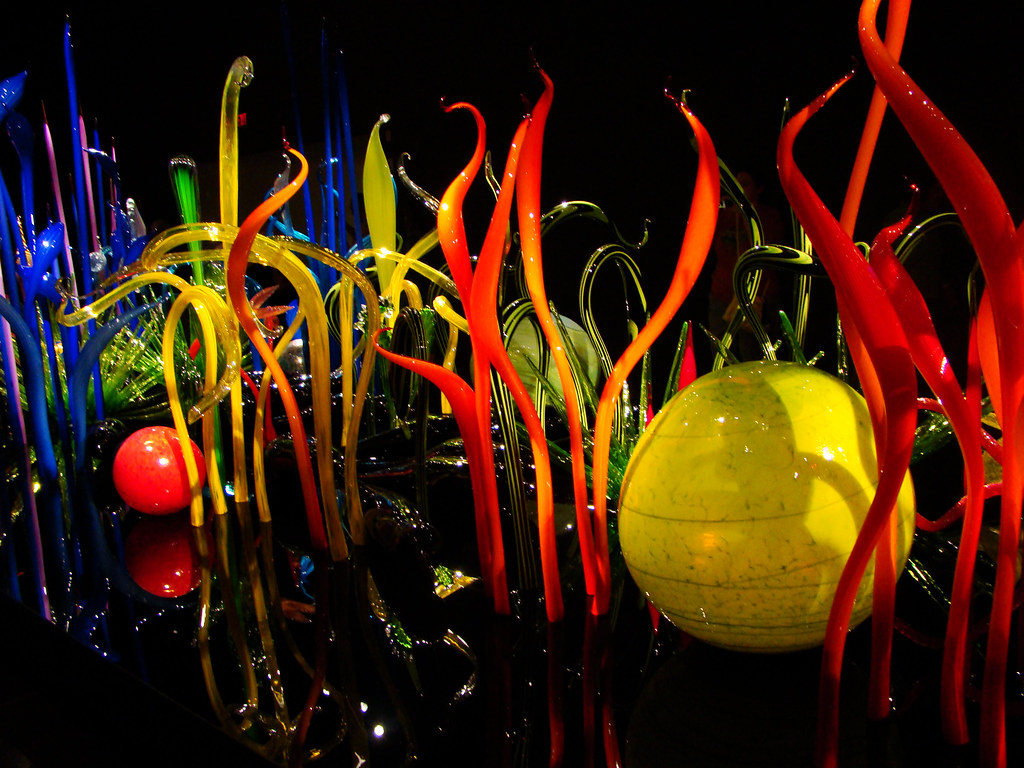
The idea of the Nijima Floats was not only to make them big, but to use a lot of color in different ways.
--Dale Chihuly
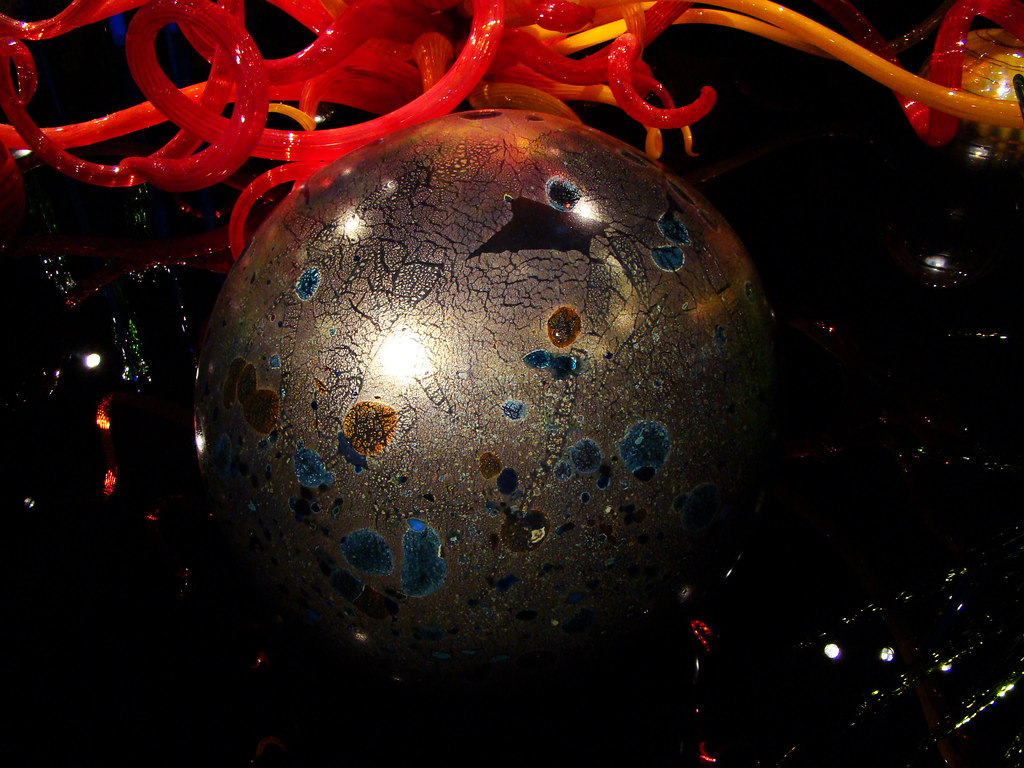


I have to say that it gives me great satisfaction that I am often able to bring members of the public into a museum, who don't normally go to museums, and that the membership increases. So a new type of person is brought in to see my work, and not only my work, whatever else is inthe museum at that time.
--Dale Chihuly
I dedicate these two posts to John Edward Buchanan, Jr. whose collaboration with Dale Chihuly brought 400,000 visitors to the Fine Art Museums of San Francisco. He lost is battle with cancer on December 30, 2011.
Update (April 17, 2012): Click here to see how Chihuly repeats many of these components for the exhibit at the Halcyon in London.
_____
All quotes from: Chihuly, Dale. Chihuly: 365 Days. New York: Abrams, 2008. Print.



